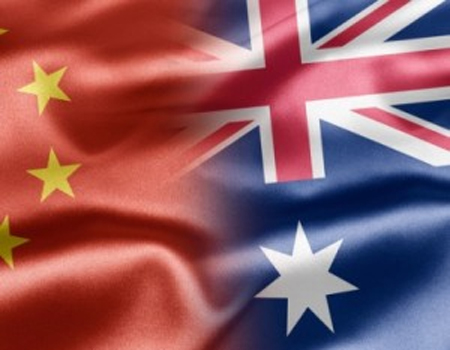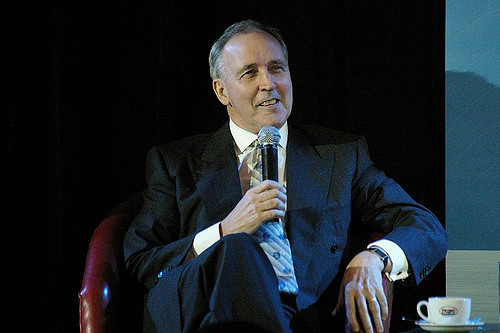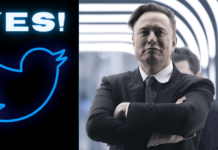
“I think the Australians need to make a choice … it’s very difficult to walk this fine line between balancing the alliance with the United States and the economic engagement with China.” The quote comes this week, from U.S. Army Assistant Chief of Staff Colonel Tom Hanson on the Australian Broadcasting Corp. Radio (ABC).
The recent announcement comes as no shock amidst the rapidly rising South China Sea tensions. U.S. military haranguing against a waning middle power – Australia – continues; they have, after all, stationed strategic weapons in northern Australia, and without the U.S. military on Australian soil, a crucial U.S. military location falters.
Australia, as Reuters points out, has been “a staunch U.S. ally” for some years. But what of the changing tides in the Asia-Pacific region? Mind the pun.
Former Australian Prime Minister, Paul Keating argued this week the need for a foreign policy to engage with the changing shifts and the “rise of China.” How welcoming his comments would be to the United States, saying they need to share the strategic power of the region with China.

“The United States is still fundamentally pursuing the policy for the maintenance of primacy against the obvious rise of China and therefore resisting the whole idea of sharing strategic power in Asia, which I believe the United States should do with the Chinese,” Keating said this week, addressing Australia’s Asian-Pacific role.
“We both need and deserve a nuanced foreign policy which does take account of these big seismic shifts in the world. And we can’t ever be caught up in some containment policy of China … to assist the Americans in trying to preserve strategic hegemony in Asia and the Pacific.”
Keating’s no-punches-pulled explanation continued, outlining the U.S. grab for power in the Pacific as an act of a country diminishing in influence. He sees the writing on the wall as something not easing, but warming simmering tensions in the region. “Strategic hegemony by the United States in the Pacific is incapable of preservation and therefore we should be urging our American friends, because they are our friends, to recognise that the US has got to move from a framing and guaranteeing role to a balancing and conciliating role.”
Warnings to the Australian Government
It’s not the first time Keating warned an Australian government of burying their head in the sand at a changing economic landscape. In 2012, Keating delivered a scathing condemnation of Australian foreign policy, or a lack of, arguing then, that the nation had become passive to American foreign policy. Keating warned a decline in Australia’s own economic value within the region, while “we have rolled back an easy accommodation with the foreign policy objectives of the United States.”
Indonesia and China are Australia’s greatest strategic alliances. “The fact is, Australia’s former sphere of influence is diminishing.” And Keating said it again this week, his focus invariably returned to the importance of geopolitical relations and alliances between Australia and Asia.
Prime Minister Malcolm Turnbull, in his TEDx talk in 2012, also acknowledged that China would overtake U.S. economic growth by 2016 – and that Australia – along with the world – should heed attention. He wasn’t far wrong. He stated, prior to his elected roll, that history is repeating itself and poses a “unique challenge” to Americans. The Americans, Turnbull said, “have a very deep sense of their own exceptionalism,” which will create a tension not yet witnessed, along with other nations’ “sense of inadequacy.”
Turnbull continued to discuss the future. “It is no surprise that as China becomes richer it seeks to strengthen its military, but we need to be very careful in the West not to automatically assume (and some people in the United States do) that a stronger more military capable China is going to be a militarily aggressive or expansionist.”
It’s not enough that we follow U.S. foreign policy, Keating argues. It is time Australia takes its own reins, to develop its own solid foreign policy. The U.S. is an Australian ally, but it is time to step out from the United States and find security in the area in which it resides – Asia – before it becomes too late.
Sources: Reuters, SMH, Coastal Leader, Australian Politics, ABC News.
This article (Former Australian PM Condemns U.S. Foreign Policy as “Containment Policy of China”) is a free and open source. You have permission to republish this article under a Creative Commons license with attribution to AnonWatcher and AnonHQ.com.





I’m not a global political strategist, but it seems to me that nations who host US military are not helping the US maintain “primacy” in a given region as much as they are co-signing a bully-of-the-block agenda founded on intimidation and violence. Didn’t the Philippines kick the US out, and are not both nations still standing? I would conjecture that Australia could do the same, and be the better for it.
Since John Howard’s rule as PM of Australia this country has been sold out completely to US. Keating was one of the few decent PM’s who put his country concerns first not as the following traitors who managed to Americanize and sell out the complete continent, people and resources. Australia’s security concerns since then are set against Nations that should be allies instead of potential enemies.
In case of WWW III Australia might easily become a nice trade object for the already dead and in receivership Empire and self proclaimed ruler of the world – the once mighty USA.
It is sad to see that a Nation which could & should be independent and debt free has accumulated so much foreign debt in the last 2 decades and nobody really cares as the Australian Flag flies high and shrimps sizzle on the barbie.
I hate to say it, but the ALP under Rudd and Gillard continued the same policies which effectively make us another American state. I miss Paul Keating!
That’s just it. China is surrounding by many powerful countries, and it is true they are. However, these powerful countries will never unite to defeat China, and I’m sorry, nut I have a hard time believing that Chin wouldn,t want world control. The first emperor of China, Emperor Qin proclaimed he ruled all four corners of the world, a dream that all other emperors desired! The name China is named after Emperor Qin becuase you pronounce his name as Chin. He censored Confucianism, he buried those alive who practiced it, he burned all scholarly literature about the topic as well. He had the Terror Cotta Warriors made, and the Wall of China connected. In his burial place, it is believed that he has a model of his emire, with running mercury water. They now believe it is true.